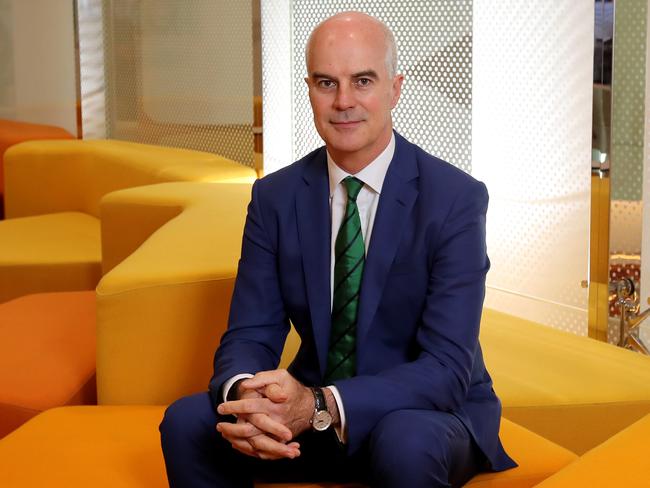Medibank Private prepares for limit on premiums has promised by federal Labor
MEDIBANK Private says it has begun to prepare for a cap on health insurance premiums as promised by federal Labor, even as it warns the policy is unsustainable.
Business
Don't miss out on the headlines from Business. Followed categories will be added to My News.
MEDIBANK Private says it has begun to prepare for a cap on health insurance premiums as promised by federal Labor, even as it warns the policy is unsustainable.
Chief executive Craig Drummond has also hit back at claims private health insurers make too much profit, saying margins for the industry sit at 5.3 per cent.
“I don’t think 5.3 per cent is an outrageous number, to be frank,” Mr Drummond said on Friday.
WHY THE PRIVATE HEALTH SECTOR MAKES EVERYONE BETTER
MEDIBANK FLAGS FLAT INSURANCE MARKET
“We clearly need to be sensibly commercial so we can invest in enhancements for our customers, whether it’s our chronic disease management programs, whether it’s our at-home programs, whether it's the improved access customers now have online.”
His comments came as Medibank reported its first growth in market share in a decade.
Net profit fell 1 per cent to $445.1 million for the year to June but its market share grew by a slim 0.05 percentage points to 26.9 per cent.
Health insurance premium revenue rose 1.2 per cent to $6.32 billion.
The Labor Party plans to cap private health insurance rate increases to 2 per cent a year for two years and order a Productivity Commission review of the sector.
Mr Drummond said Medibank was stripping costs out of its business to make it ready for a cap that would crimp the sector’s revenue growth at a time when growing numbers of customers are giving up private cover because of affordability and value concerns.
Medibank’s management expense during the past year fell 2 per cent to $557.2 million.
Initiatives to provide treatment to members at their homes also helped keep costs down, Mr Drummond said.

“The executive have focused very strongly on what we would need to do to lean into a 2 per cent environment,” he said.
“If you look at our management expenses, the fact that they went backwards is indicative of some of the early thinking that we have had.
“We are controlling what we can control. And what we can control is our management expenses and we have done a lot of work, and will continue to do a lot of work, on those.”
He said the insurer would also review how it advertised and sold its products, forecasting a cut to commissions paid to third-party sellers such as comparison websites.
But he warned Labor’s policy would not provide a long-term solution to the issue of affordability, given health costs had risen 4.5 per cent above inflation annually for the past decade.
“The problem with the ALP’s policy is that it does not address the continued rising health costs in the sector,” he said.
“When the industry is making a margin at 5 per cent, if costs are running at 4 or 5 per cent and the cap is 2, without reform it is not going to be sustainable.”


